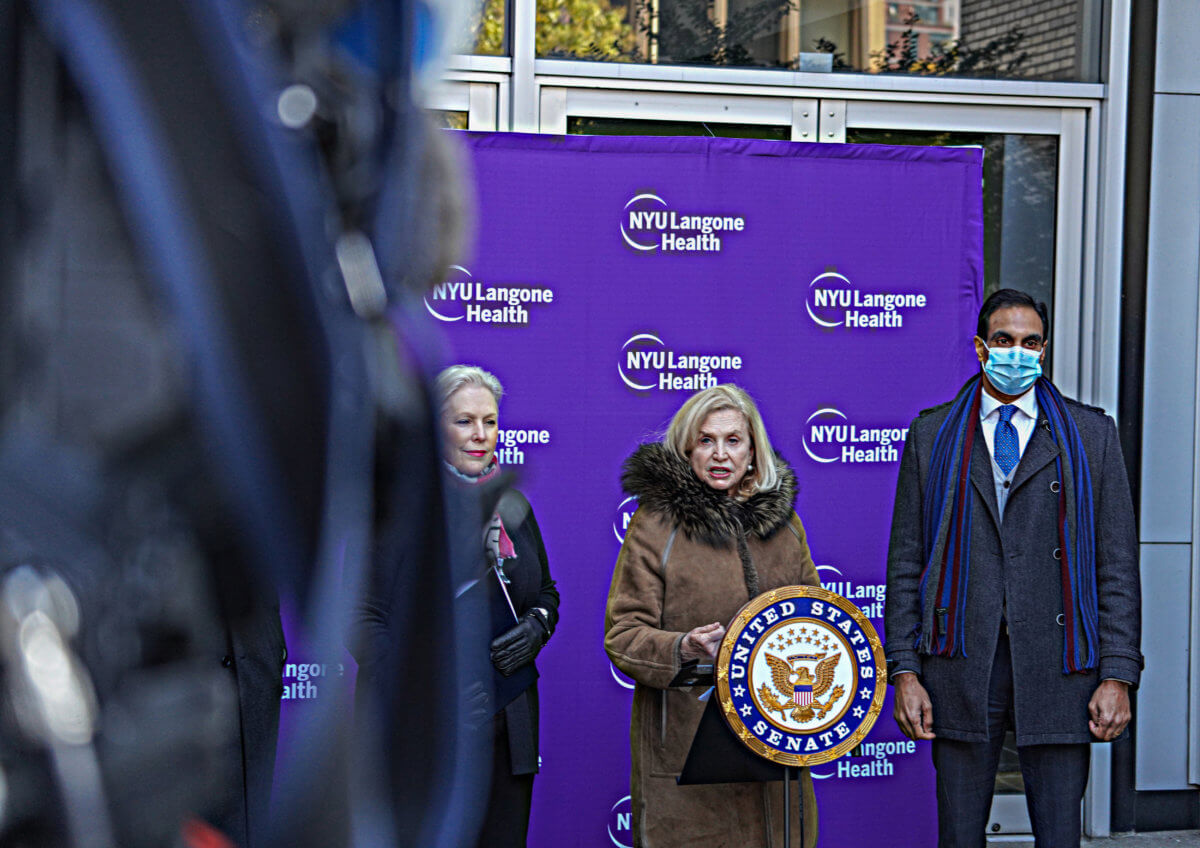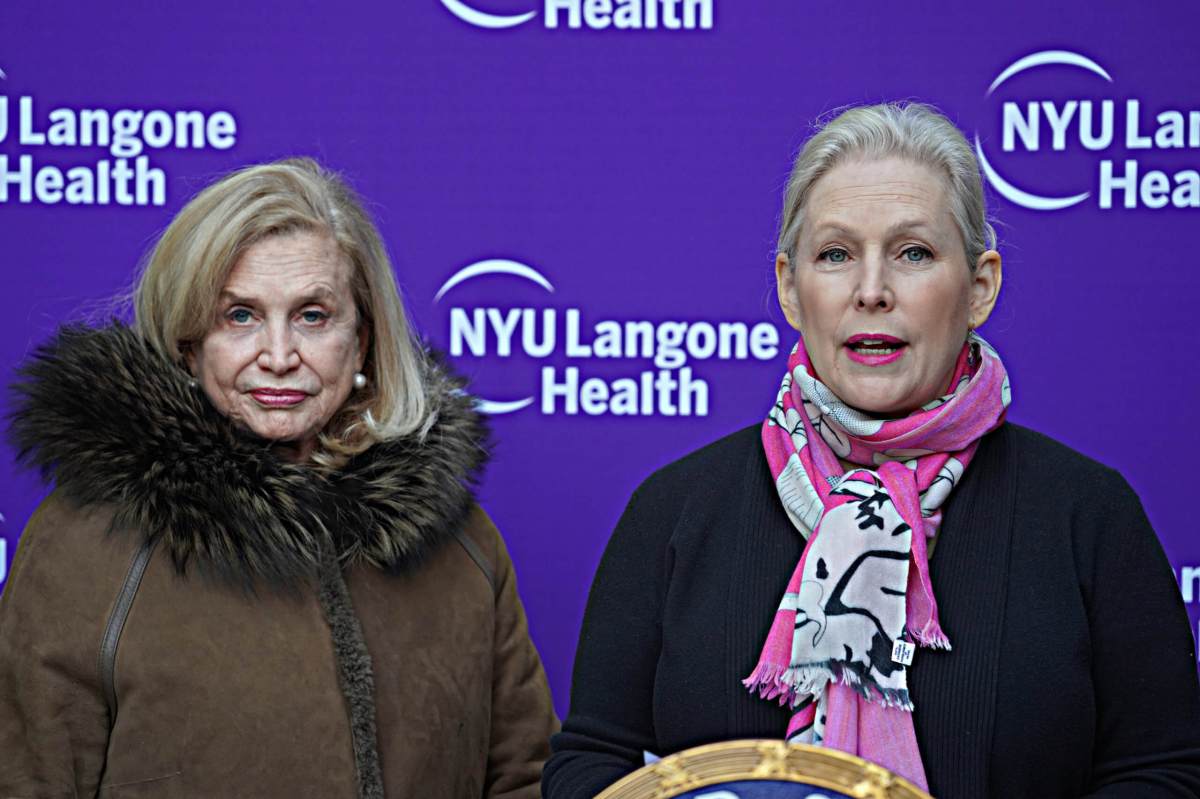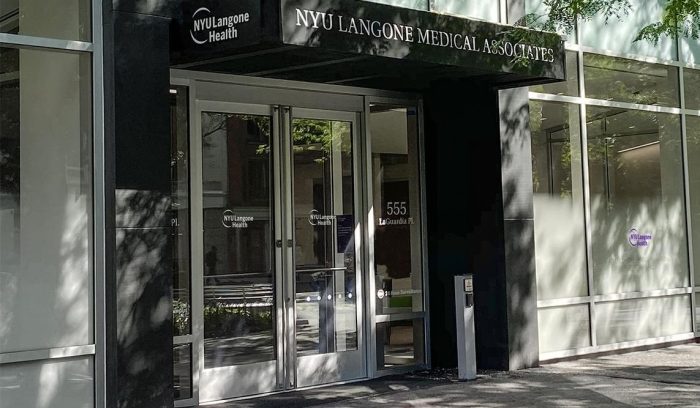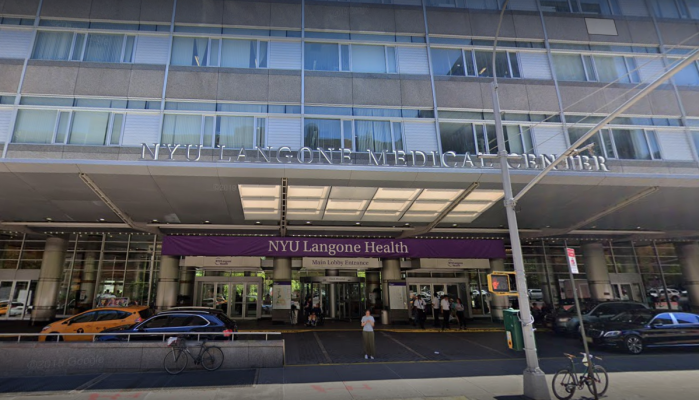Senator Kirsten Gillibrand and Congresswoman Carolyn Maloney are urging the government not to “wait until it’s too late” to be prepared for the next COVID-19 variant and pandemic.
With the recent discovery of Omicron cases in New York City, Gillibrand and Maloney are pushing for COVID-19 and Pandemic Response Centers to prepare for emergency situations that can better access and control potential outbreaks from future variants through coordinated task hubs.
When the COVID-19 pandemic struck New York City, hospitals and first responders were overwhelmed with the vast number of patients flooding into emergency rooms. Medical supplies were scarce and impromptu sites were erected to manage the sheer number of infected. One of the biggest criticisms leveled at government when the virus’s onslaught began was that the United States was not ready.
If passed, the legislation to fund Excellence Centers as a real-time emergency response to COVID-19 variants, ensuring healthcare workers don’t face a repeat of the slow-motion disaster that struck the city in March 2020.

On Dec. 5, Gillibrand and Maloney joined health officials outside of NYU Langone Health on the East Side to tout the COVID-19 and Pandemic Response Centers of Excellence Act, a bipartisan bill that would provide $500,000,000 funding to establish centers throughout the country to handle emergency medical responses.
“The Omicron variant and the recent news that cases of the variants have been confirmed in New York are a reminder that COVID is not over, and that tackling pandemic and public health challenges is and will be an ongoing effort. Viruses evolve and our ability to respond must evolve alongside them,” Gillibrand said, using NYU Langone as an example of a medical center that could revolutionize rapid response by their ability to implement in-depth diagnostic testing and clinical care for the most complicated cases to save lives.
“In fact, much of the late-stage development of vaccines and other lifesaving interventions has done in partnership with academic medical centers. That is what academic medical centers are designed to do. They’re uniquely positioned to serve as a bridge between government, academia, public health, and private industry, while integrating the needs of their local communities including the most vulnerable and underserved. They are the nexus for innovation implementation. They combine research, clinical operations and education and with sufficient federal resources they can use that knowledge to help our nation fully combat this public health crisis and leave us better prepared to coordinate a real-time response to the next one,” Gillibrand added.

Test and trace and vaccination sites are a few initiatives developed to help combat COVID-19, but this took months to coordinate and a year-later for inoculations to be finally distributed.
Elected officials believe this legislation would greatly improve variant tracking and prepare for the overall health and safety response through “Centers of Excellence,” designated by the Department of Health and Human Services (HHS).
In addition to providing a holistic approach to care, the bill will afford academic medical centers the ability to leverage public and private partnerships to help provide clinician training, infection prevention, public health surveillance and outcome tracking, public outreach and education, clinical research, and development for testing, treatment, and vaccines. It also allows the HHS to award grants, contracts, or cooperative agreements to academic medical centers expediting their proactive care in COVID-19 patients, survivor recovery, mental health services for healthcare workers, equitable healthcare for all (combating disparities in low-income communities), health education, and more.
“During COVID-19, academic medical centers were the epicenter of the epicenter, the cutting edge in research responding to COVID-19. Much of the needed trials, much of the needed research, the patients were here and the discoveries and treatment remain in centers like this. We need to continue funding them. We need to support them in order to make scientific progress,” Maloney said.




































